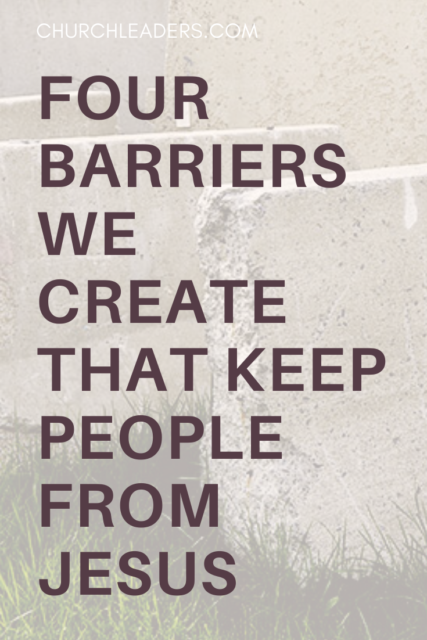Jesus was considered repulsive by religious insiders and a breath of fresh air to religious outsiders.
Are we?
The Barrier of SMUGNESS
There is a price to pay if we get serious about cultivating lives, homes, and communities that are full of grace. The more we prioritize befriending the kinds of people that Jesus did, the more we will experience resistance and even rejection from the so-called “faithful.” They may even be our fellow church members.
It’s a simple fact. When we do the kinds of things that Jesus did, and love in the kinds of ways that Jesus did, some people will take offense at us. And they will convince themselves that they are rightly offended based on their love for God. But anytime someone is offended by kindness that resembles Jesus, our Lord says that this person is acting not out of love for God but possibly as a child of the devil (John 8:39-47). It is Satan, not God, who is the hater of kindness. It is Satan, not God, who is the accuser of the people whom Jesus loves.
Consider Luke 7, where a woman described as “sinful” enters the home of Simon the religious Pharisee. In the name of love, and in the spirit of radical grace, Jesus receives with delight her very un-orthodox display of affection toward him. Jesus breaks with religious customs, allowing this ceremonially and morally unclean prostitute to touch his feet. He breaks with social customs also, receiving her as his disciple—putting a woman on equal footing with men in a very paternalistic, misogynistic society where women were seen as second class.
Most scandalous, however, is the way that Jesus breaks with moral customs to demonstrate to this woman how dear she is to him. She lets down her hair in public, which was considered scandalous in those days, and something that women could only do in the presence of immediate family members.
She also touches Jesus with the tools of her prostitute’s trade. He lets her anoint him with a prostitute’s perfume, kiss him with a prostitute’s lips, and wipe his feet with a prostitute’s hair!
Some will remember the rest of the story. Jesus is treated as scandalous by the religious hosts. To these smug Pharisees, showing positive attention to this woman—whom they judged as a sinner not a child of God, as a thing not a person—was proof of moral compromise.
This story has serious ramifications for those who wish to represent Jesus well in a modern context. For if Jesus were a 21st century American, he would not associate godliness with membership in a political party. He would not tell a sexually promiscuous woman that she was “in sin” without also offering her a personal, no-strings-attached friendship. He would not talk about how smoking destroys God’s temple while simultaneously devouring his third piece of fried chicken or fourth cookie (or both!) at a church potluck. Jesus would not condemn adultery as being any worse than studying the Bible for the wrong reasons.
The Barrier of PRIDE
Becoming a friend of sinners begins with the understanding that we are much more like the “chief of sinners” than we are like Jesus Christ. Our approach with all people, no matter who they are or what their history might be, must assume the posture of “fellow beggars humbly telling others where to find the bread” (I got this magnificent quote from Steve Brown).
If we really want people to be impacted by the gospel and to enjoy the riches of God’s grace, they must first see in us the humility of those who have been, and continue to be, genuinely impacted by grace ourselves. Our humility must be authentic and not just an act. If we have never been brought low by God, we will approach other people from a high horse. And that is never any good for anybody.
Consider the Apostle Paul. He was not above humbling himself. In Romans 7 he gives us a window into his personal struggle with the sin of coveting—a sin nobody would see unless he told them—and the way that the gospel gave him hope in the face of his coveting. In 1 Timothy Paul identifies himself as the chief of all sinners. If we intend to reflect Jesus in our ministries and our messages, we need to get over our love for reputation and image. As the late Jack Miller once said, “Grace runs downhill.” We can only be drenched by grace from the bottom of the hill.
And yet, how easy it can be to build our identities on how good we look—on being “model Christians” that people are supposed to admire because of how put-together we appear to be. But we must not do this. It is a trap and it will rob us of gospel power and effectiveness. If people around us are going to be changed by the grace of Jesus, they must witness the gospel working effectively in our lives—healing us of our sins and deepest wounds and fears.
Changing us.
This article originally appeared here.












